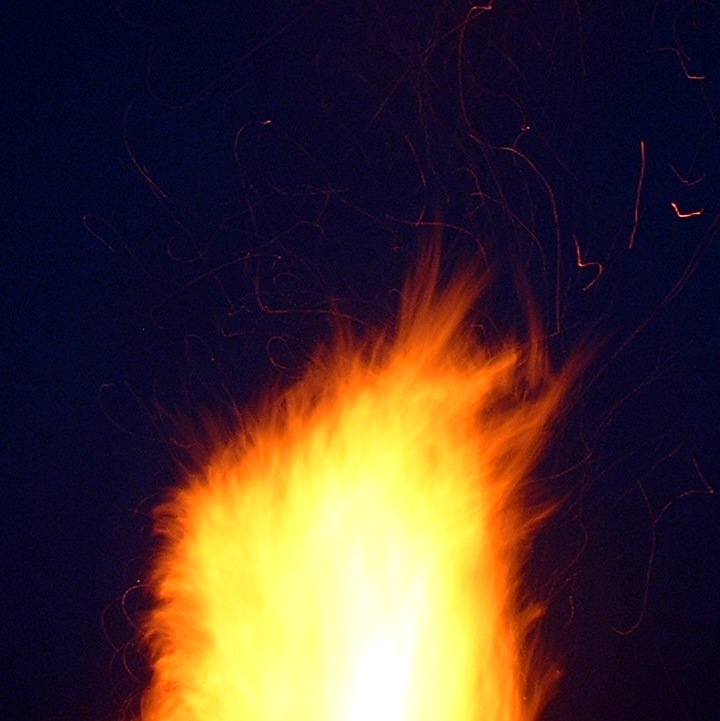Fossil resources, i.e. coal, oil and gas, are finite. This fact is not surprising, but is worth to be mentioned. Its direct consequence is that in near future we will have to be able to generate (more precisely: convert) all energy we consume from renewable sources. This need is independent from any consequences that arise from the combustion of fossil fuels (i.e. greenhouse effect). The climate change just adds another “incentive” to realise that necessary shift more quickly. This article tries to give a non-exhaustive overview over the current dependency on fossil fuels and scenarios of possible replacements.
Current state
In 2006, about 86% of the world’s primary energy usage was covered by fossil fuels. This is indeed a strong dependence on resources which won’t be available indefinitely. Furthermore the annual consumption of fossil fuels is increasing. This increasing demand soon might be confronted with Peak Oil, an event which probably marks the end of the era of cheap fossil energy. Peak oil is defined as the instant when the global oil production no longer increases. It is predicted to occur somewhere in the near future, perhaps in the next decade. With high confidence it can be said that we’d better look for replacements now:
Nuclear alternatives?
Some experts and politicians see nuclear power as a feasible source to replace fossil fuels. Nuclear power can mean two options: the first one is nuclear fission as present in all existing nuclear power plants in which uranium is fissioned in a controlled chain reaction to heat water that propels an electric generator. In my opinion their use is irresponsible due to the difficulty—if not impossibility—of safely storing the nuclear waste for thousands of years. Another counter-argument is that uranium is a finite resource, too. The second option still takes at least 50 years of research: nuclear fusion. It is to be like fission, but without the risks of a reactor meltdown and no long-term radioactive waste. I would embrace this source of energy, but it will basically come too late. We need to reduce the use of fossil fuels now, not starting in 2060 or even later.
Solar power
The only reliable source of energy that won’t deplete as long as earth exists is the sun. Already with today’s technology it would be possible to supply the vast majority of our energy consumption by solar plants. Here I am not primarily referring to the prominent photovoltaic cells. I rather think of much simpler solar-thermal power plants, which concentrate the sun’s rays in order to directly heat water that is used for the generation of electricity. This type of power plant only makes sense in constantly hot, sunny regions like deserts.
And indeed this idea is not new: the Solar Grand Plan in the USA and the initiative DESERTEC for around the Mediterranean Sea are concepts to construct a huge amount of solar power plants that could provide the better part of the needed electric energy.
What else
Now I talked about a possible substitute for fossil fuels, but only for the generation of electric energy. However, mobility and heating are dependent on fossil fuels, too. So other things have to happen, too:
- Modernise buildings to save energy otherwise wasted for heating or cooling. Passive and zero-energy houses exist.
- Develop and—especially—apply new concepts for individual mobility. Perhaps the future belongs to electric vehicles, perhaps other ideas will emerge.
- Increase research for small and large scale energy storage technologies. This could enable the construction of electric vehicles with higher range.
So all in all there will be a life “beyond petroleum”…






Comments
6 responses to “From finite to renewable energy”
Wow… What an interesting article! Though I believe You’re too optimistic. I’m afraid there are much more interests playing a role in that big game which is energy, and that some people are deciding for the rest of the planet what is good and what is not; those same people see their own interests in a very short time, without being clever enough to take everybody’s interest in consideration, and the humanity as a whole.
I heard about this DESERTEC project too. As You said, deserts are the best place for such a project, but I see a real problem in it as long as Europe – well, actually it’s Germany, right? – is building such a thing in the Sahara. The first part of the problem I see in it is : because they are building it not in Europe, which means that the energy will have to be transported. This means financial and ecologic cost. But, what is in my opinion worse, is the second part of the location’s problem: it’s the human cost: the Europeans are building it outside of their continent, with not much concern for the people living there. Would it also be for the ones living there and for the Europeans, I wouldn’t be that critical. But as far as I understood it, it is planned to be used for the Europeans, and not Africans. Which doesn’t make that much sense for me… Or did I miss something? My source for this was : http://www.mdr.de/mediathek/themen/5869299.html
I think the television oversimplify the whole process: If there are 12 big companies which invest in Sahara countries, many employments will be created there. Furthermore, while the energy of those big solar plants will primarily be exported to Europe, I doubt this will be 100%. A small percentage would already contribute much to the consumption of the North-African countries. See this list of countries by electricity consumption: Germany for example consumes about 25 times more electricity than Morocco.
Of course Germany consumes 25 times more than Morocco! But saying that you have to take in consideration the reasons why the consumption is as low… I mean, in Morocco, I suppose that the conditions to access things requiring energy, like even light in small village, is not as spread as it is in Germany! Not everybody has a laptop, or hot shower! Of course laptop is not vital, but many things missing over there are… So, we have to hope that those country will soon or later be able to develop and offer its inhabitants those things requiring energy. According to this article from Le Monde.fr this will last around 20 years. But at that time, when the countries of North Africa will dispose from their own solar technology and needs, there won’t be enough place for them!
I would suggest that the wiser solution would be to share this energy, helping the countries in North (and South Africa) to develop themselves, furnishing, as you said, employment and formation, and in the same time that Europe reduces its own use of energy (because a lot of energy is also wasted in the old continent!) to balance this energy problem. In a perfect world, we wouldn’t need to discuss this, because everybody would have access to education, energy as they need, and everything…
I’d also love to vote for renewable energy with closed eyes, but I want to keep them open to check if really everybody is profiting from it, not a small privileged minority…
Anne-Coralie wrote:
You slightly underestimate the amount of energy that can be produced there: this image (included on the foundation page on desertec.org) gives a clue how much surface would be needed to generate 100% of the electricity consumed by Europe or the world.
As I wrote: reduction of energy consumption is crucial in Europe, especially in areas where still much potential is not used (like mobility and heating); but the world’s deserts could deliver more than enough energy for everyone.
Erm… I sincerely hope you’re right and that this project will solve the problem of energy on the Earth, generating a huge cooperation and friendship in the world. Because solving the problem of energy would almost mean solve the source of most wars and conflicts on this planet… However I keep being sceptical and… Let’s hope it’ll work!
Hi!
You may be interested by this article that I read today. It’s kind of a try on “Who wants to be an engaged ecologist?” :
http://www.lemonde.fr/planete/article/2009/07/17/j-ai-teste-pour-vous-l-ecologie-au-quotidien_1220104_3244.html